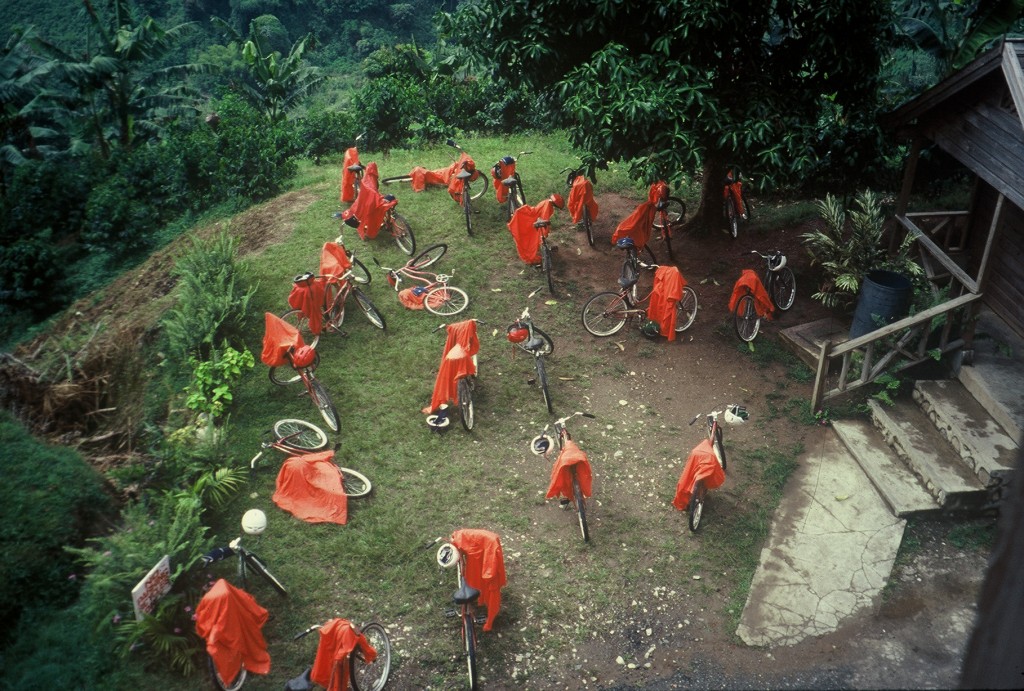Obama’s eulogy was eloquent, if unemotional. Patrick Kennedy’s was too political. But Ted Kennedy Jr.’s talk was really moving. He mixed a sense of history with a conveyance of the personal. He was serious but appropriately funny. And he told some good stories. I got a little choked up when he told this one.
When I was 12 years old I was diagnosed with bone cancer and a few months after I lost my leg, there was a heavy snowfall over my childhood home outside of Washington D.C. My father went to the garage to get the old Flexible Flyer and asked me if I wanted to go sledding down the steep driveway. And I was trying to get used to my new artificial leg and the hill was covered with ice and snow and it wasn’t easy for me to walk. And the hill was very slick and as I struggled to walk, I slipped and I fell on the ice and I started to cry and I said “I can’t do this.” I said, “I’ll never be able to climb that hill.” And he lifted me in his strong, gentle arms and said something I’ll never forget. He said “I know you’ll do it, there is nothing you can’t do. We’re going to climb that hill together, even if it takes us all day.”
Sure enough, he held me around my waist and we slowly made it to the top, and, you know, at age 12 losing a leg pretty much seems like the end of the world, but as I climbed onto his back and we flew down the hill that day I knew he was right. I knew I was going to be OK. You see, my father taught me that even our most profound losses are survivable and it is what we do with that loss, our ability to transform it into a positive event, that is one of my father’s greatest lessons.
Ted Jr. closed with this simple but poignant thought:
I love you dad and I always will. I miss you already.
Part of the reason that watching the memorial service got to me was because it brought back memories of John Kennedy Jr.’s funeral, back in 1999, when Teddy had been a pillar of strength, saying of John that he “had every gift but length of years.”
In American Son, I wrote a short section about Teddy at the reception afterwards. For what it’s worth, I’ll share it here.
I heard the sound of singing and followed it into a small, sparsely decorated anteroom where the gospel choir from the hurch, a clean-cut, racially diverse group, stood in a circle. Holding hands with a singer on each side was Ted Kennedy, who was leading the group in an Irish ballad. I’d never heard it, but I got the feeling that if you were Irish, you’d have known it by heart.
When that song was done, the choir launched into a slow, mournful hymn. Tedddy didn’t seem to know this one, so, still holding hands and rocking back and forth a little bit, he listened and waited until they finished. By now a crowd had gathered, watching as much as listening, knowing that this was a scene we would not forget.
“We can’t end with a sad song,” Teddy declared. He launched into another Irish sing-along—faster, cheerier. Teddy’s voice was strong. It wasn’t polished and it wasn’t smooth like the voices of the singers around him. But it was resilient, the voice of a man who knew death and so realized that the rest of us needed someone to offer hope.
Tears came to my eyes again, as I watched Senator Kennedy muster his strength to lift the spirits of others. This is courage, I thought. Ted Kennedy, standing in a circle of black and white, singing for his lost nephew, his brother’s son.
People will debate Ted Kennedy’s contributions to public life, as well as his personal successes and failings, for years to come, which is as it should be. But there should be no debate that his was a remarkable life and there will probably never be another American life like it.
